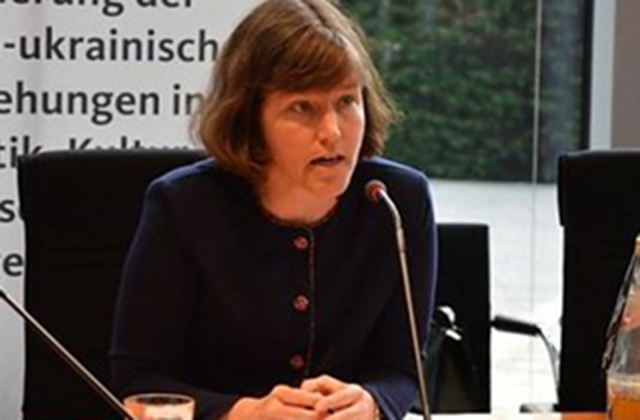Signing of Armenia-EU agreement depends on a number of factors: German analyst

“Armenia-EU future agreement won’t be signed by the end of this year,” Susan Stewart, Deputy Head of the Eastern Europe and Eurasia Research Division at the German Institute for International and Security Affairs (SWP, German analyst told 168.am, touching upon Armenia-EU negotiations.
Dirk Lorenz, Head of the Political, Economic, Press and Information Department of the EU delegation in Armenia, stated that they will probably not give the qualification “Association Agreement” to the Armenia-EU agreement, as formerly they had a draft Association Agreement , however it wasn’t signed as a result of reorientation. In his words, the launched negotiations around new framework agreement are developing rather well. “We are recording progress, we managed to fulfill a few chapters of the document. Next stage of negotiations will be soon launched in Yerevan, by continuing this positive spirit,” he said.
Susan Stewart said that accomplishment of Armenia-EU negotiations and signing of the forthcoming agreement no so much depends on the process of negotiations, but from settlement of related issues. “Armenia and the EU have negotiated a more serious and large document and accomplished it, the forthcoming agreement won’t include any new responsibility. Basically the sides presently optimize former agreement to present-day realities. If possible, this could have been organized in rather short terms. However, here issues of both Armenia-EU relations and inside the EU, Armenia and Armenia-Russia relations have accumulated. Thus, we are in a complicated process, which doesn’t depend on Armenia and the EU only, but on many other factors. And considering that at least next negotiations will be held this month, any document will be signed this year is naivety as the issues I mentioned haven’t been solved neither in the EU, nor in Armenia,” Susan Stewart said.
The latter stressed that at Russia-West confrontation stage some EU member countries have totally moved EaP programs to the backstage, including Germany. In her words, this is one of the issues inside the EU, which is justified as the EU doesn’t have enough resources to confront Russia, thus, it should attempt to give another exit to the situation, mitigating Russia’s possible negative reflection.
“As you may see, due to that very Russian threat processes with other EaP member countries aren’t intensively developing, and in case of Armenia a more serious process is taking place, as Russia’s moods are being touched upon, as well as what may generally move forward the Eap program. I don’t know a single fact that Russia may go against the future agreement, however, there is information that the Russian side is aware of all the points, enshrined in the future document. If it doesn’t prevent, to all likelihood, the Armenian side will sign the document, however, probably when settlement of all these issues will be shaped,” Stewart concluded.
By Araks Martirosyan

























